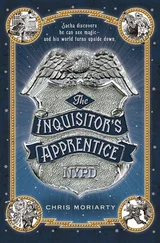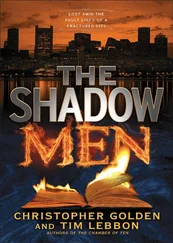She opened the drawer he pointed to. It was empty. “What—?”
He smiled. “What’s the closest sense to memory?”
Li blinked. “Smell.”
“So?”
She bent over the drawer and sniffed. It smelled of cedar, and of the old-fashioned furniture wax that infused every piece of wood in Cohen’s realspace house. She had a ridiculous momentary image of one of his impeccably dressed French maids getting down on her immaculate knees to scrub at the floors and baseboards of the ethereal memory palace. Then she caught the smell underneath the other smells: the smell of the memory itself.
The room around her disappeared. She stood on a steep scree slope, her face warmed by the golden sun of pre-Migration Earth. A glacier snaked away like a river below her. Behind her loomed a near-vertical wall of rock and ice whose very shadow was like a little death. She turned and craned her neck to look up the soaring granite column above her. This was the Walker Spur of the Grandes Jorasses, her oracle told her. The most spectacular route up the most beautiful rock face on the planet. Given the state of the glacier winding below her, this couldn’t be much after the turn of the twenty-first century. Italy lay south, on the other side of that colossus. To the west, the Mont Blanc glittered under a sky blue enough for the most cautious climber to gamble on.
“Planning on helping?” someone said behind her.
She turned and saw a woman crouched on the slope below her coiling a brightly colored climbing rope. She handled the rope expertly, without wasted motion, lean climber’s muscles bunching and flexing under her sunburned skin. Lucinda , Li thought. Her name is Lucinda.
Lucinda looked up, her eyes (which Li somehow knew were blue) hidden behind mirrored glasses. Li saw her own doubled reflection staring back out of the lenses: a dark, narrow-faced greyhound of a man that could only be Hyacinthe Cohen himself.
“I love you,” Li heard Hyacinthe saying in a voice that was kissing cousin to Cohen’s voice. And she shivered, because she knew that love. She felt the heat of it, remembered living it. Remembered not just this moment, but everything. The whole life of a man who had died two centuries ago.
Lucinda just grinned up at her with the warmth of a shared joke, and said, “I know.”
“Interesting,” Cohen said as the memory palace took shape around her again. “I wouldn’t have expected you’d see Cinda.”
“You don’t see the same thing every time?”
“As time passes, I become more and more inclined to sacrifice retrievability for… other values. Surprising what surfaces. As if what I bring in with me sets the direction. Most AIs, including some of my own associates, find it ridiculously inefficient. But then”—he smiled complacently—“I’m not most AIs.”
She looked around. How far did this go on? And what, or who, was lurking in all those other memory palaces?
“What’s bothering you?”
She hesitated. “It seems so… human.”
“Well, in many ways Hyacinthe is human.”
“You talk about him as if he weren’t you.”
“He’s not all of me. But he is the first.”
“So he controls… the others?”
Cohen made a hairsplitting face. “ Controls is too strong a word. I’d say he… mediates. I know you think I’m an inveterate navel-gazer, but to tell you the truth, I’ve never really thought much about it. Do you think about how you walk down the street? Or how your stomach works?”
“It’s just that I can’t square it with…”
“With what made you almost fall off the front porch before?” She thought he was waiting for her to smile at the front-porch quip, but she couldn’t bring herself to do it. “Do you have to reconcile it?”
She had no answer to that.
“If it’s any comfort to you, most of the sentients in my shared net have the same reaction. They can’t get any perspective on the system without my mediating. It doesn’t mean I control them. They have their own ideas and opinions. But they’re guests here. And as it’s my house, they follow my rules. Mostly.”
Li looked at him uncertainly, hesitating between the many questions jostling in her mind and not finding any she was willing to ask just yet. She wandered down the rows of drawers, opening a few of them, with Cohen always just behind her, watching, commenting. Slowly, without quite admitting to herself where she was going, she worked her way back toward the garden.
It was a curious garden, wild, heavy with the smell of earth and roses. The near end was well kept up, planted in neatly tended French beds of herbs and flowers, almost formal compared to Cohen’s realspace jungle. But at the far end the ground and even parts of the palace itself had been overrun by a fierce sprawling thicket of wild roses.
She eyed the thorny tangle over the heads of the neatly pruned dahlia beds. It looked as if some feral and not entirely friendly presence had established a beachhead in that corner of the garden and was only biding its time before it flung out its thorny suckers to swallow the whole cloister. “You ought to rip those out,” she said. “They’re taking over everything.”
“I know.” Cohen smiled wryly. “They’re weeds, really. And they have the most vicious thorns. The thing is, I like them.”
Li shrugged. “It’s your garden.”
“So it is,” Cohen said. He strolled down toward the wild end of the garden and settled himself on a low bench already half-engulfed by a particularly predatory moss rose.
Li circled the garden, poking into the boxes and cabinets that lined the cloister. She found memories of half a dozen people she knew: Nguyen; Kolodny; a few AIs she’d met on Corps missions. Even Sharifi. But not the one person she was looking for.
“Can’t find it?” Cohen asked. She looked over and saw he was laughing at her.
“Who says I’m looking for anything?”
“Have a rose,” he said.
He plucked a moss-petaled bloom off the bramble behind him and held it out to her. She took it from him —but as she wrapped her fingers around the stem it pricked her.
“Christ!” She looked at her finger and saw blood welling up from half a dozen punctures.
“It’s a real rose,” Cohen said. He bent and handed it to her again, holding it gingerly. “Real roses have thorns. That’s why they smell so sweet.”
She put it to her nose, smelling it. And realized that the rose itself was a memory. A memory of her.
There she was six years ago. Younger, thinner, but her. This was not Li as she knew herself, though; it was what Cohen remembered. The young CO he had locked horns with during their first tense mission together. A dark whirlwind of a woman, hard, driving, utterly unyielding. Not a person Li herself could imagine liking. Not a person, she realized with a jolt, that Cohen had liked much.
“Was I really so awful?” she asked.
“Just a little thorny.”
“Very funny.”
“It wasn’t meant to be. As I recall, you pricked my ego not a little.” He grinned. “A certain speech about not having the patience to work with dilettantes comes to mind.”
“Don’t remind me.”
“My dear, it was well worth it for the sheer entertainment value of watching a twenty-five-year-old who never finished high school look down her nose at me.”
“It’s not like I was the first.”
“Oh. Well, that’s simple bigotry, often as not. You despised me personally. I respected that.”
Something in his smile made her drop her eyes and turn away. She brushed her finger over the white velvet skin of a petal, then bent her head and put the blossom to her nose again.
Another memory. Her again, leaning back against the door of an officers’ flop on Alba with a knowing smirk on her face. It was the evening of the first and only night they’d spent together. She remembered standing there. She remembered looking across the room into Roland’s golden eyes, trying to play it cool, wondering what the hell Cohen even saw in her, still half-convinced it was all an elaborate joke at her expense.
Читать дальше












